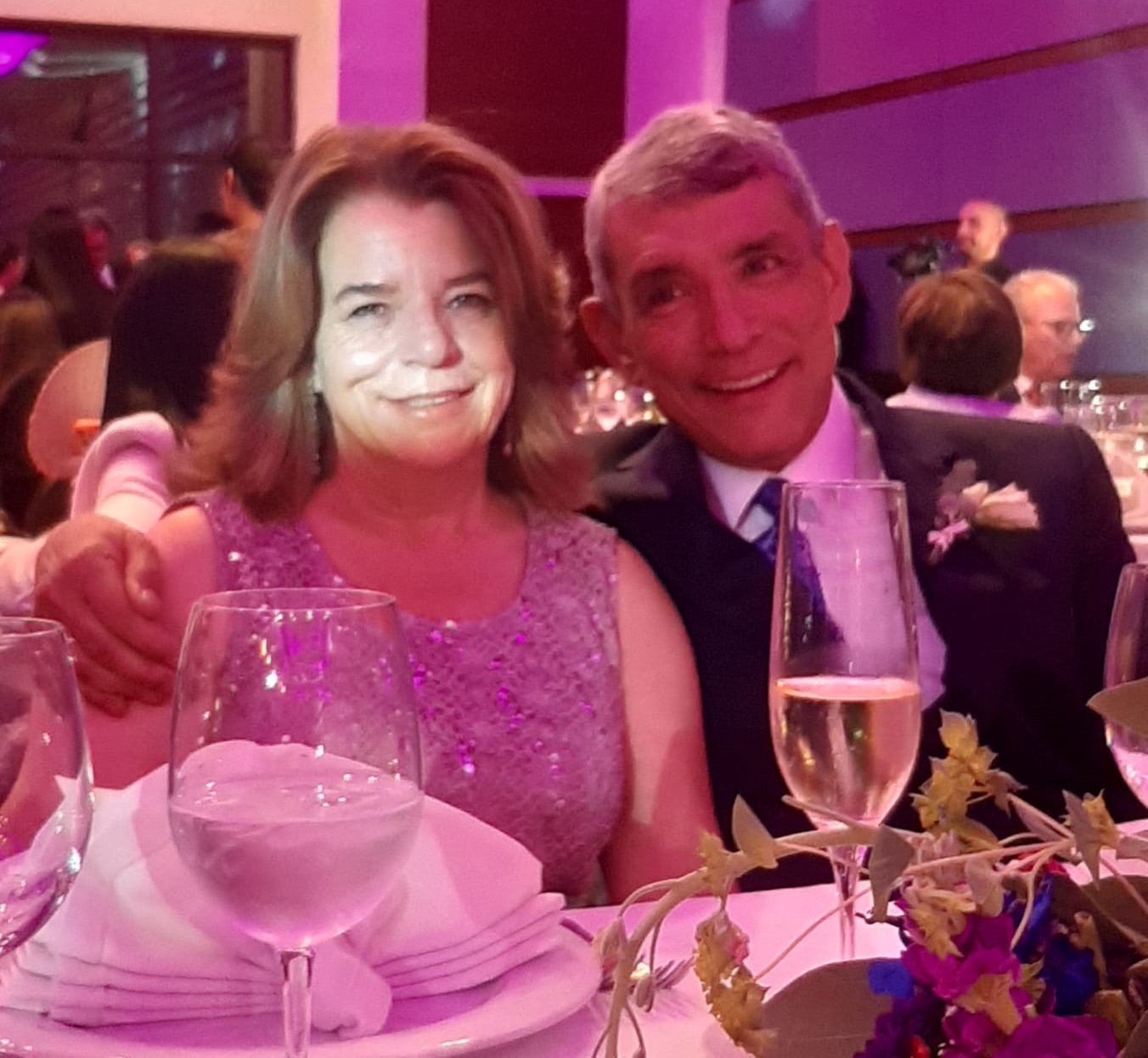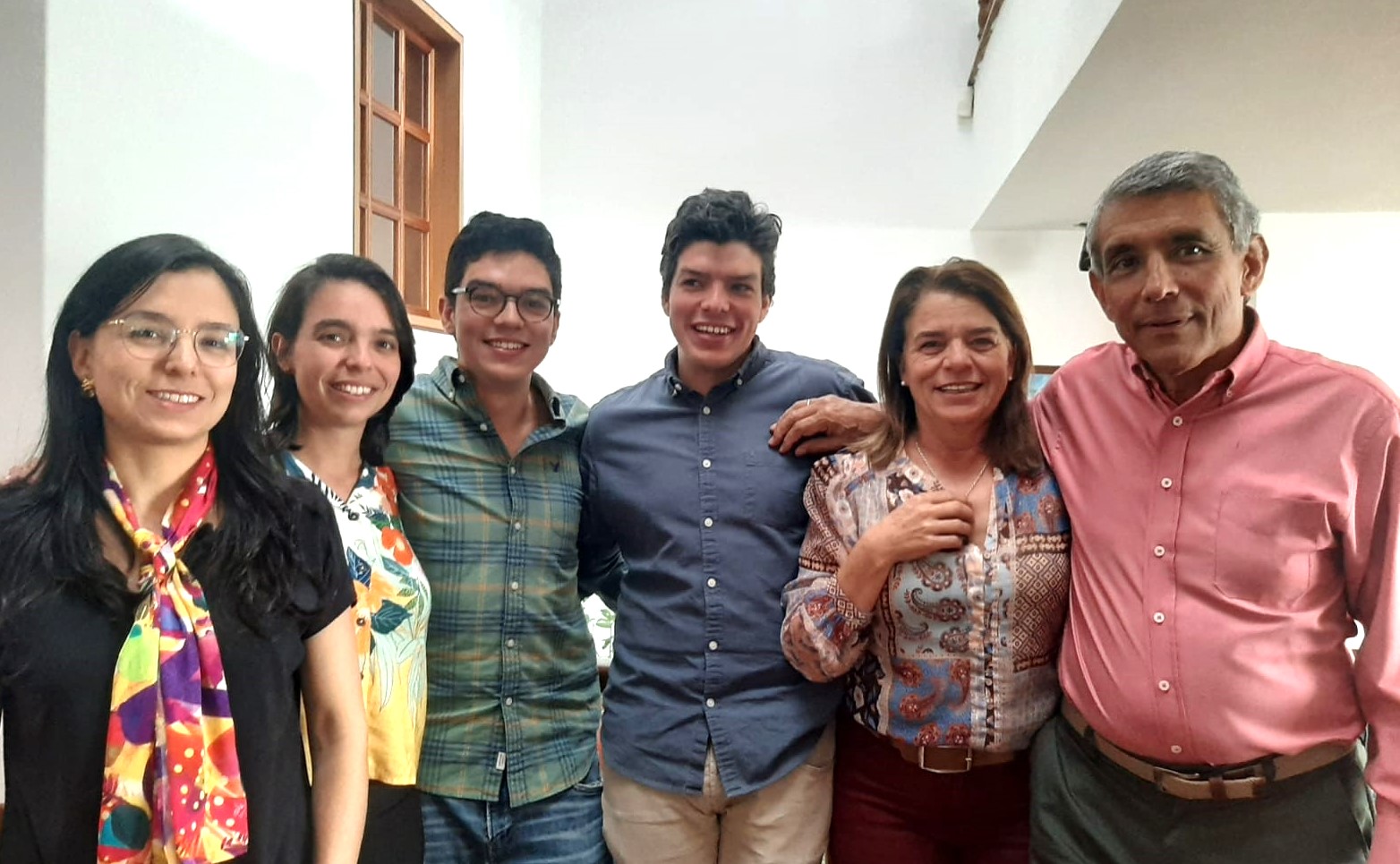Truth serves as guiding force for founder of Colombia firm
Articles
Attorney Spotlight
View more from News & Articles or Primerus Weekly
By Brian Cox
When Felipe Pinilla was a newly minted lawyer, he approached his father for guidance on whether to accept a position with Colombia’s Ministry of Labour.
Eliecer Pinilla, an accomplished and respected criminal law attorney in Bogotá for nearly 40 years, was blunt: “Don’t be stupid,” he told his son. “Politicians will only exploit you. You have to open your own practice.”
Pinilla, however, did not follow his father’s advice – not at the time, anyway.
“What I immediately did was to go and accept the offer,” he says with a nostalgic smile.
But his father’s advice turned out to be right because Pinilla didn’t stay with the government long. After a year of working as an advisor to the vice minister of the Ministry of Labour, he took a position as in-house counsel for a large construction company in Bogotá. Less than 18 months later, he moved up to join the legal department of Fundación Grupo Social, the parent company that managed a half-dozen additional businesses across Colombia.
Over the next three years, Pinilla broadened his exposure to and understanding of real estate and urban planning law as he advised the company on the creation, development, control, and administration of its financial and real estate companies.
Only then did Pinilla finally heed his father’s words of wisdom and start his own law firm. He launched his solo practice on February 1, 1988, initially running the firm from his apartment before renting a small office that could barely contain a conference table. His mother, Ernestina, served as his legal secretary. It was a small but ambitious enterprise.
Pinilla initially thought his greatest challenge would be engaging clients, but that quickly proved to not be a problem. On day one, he received a call from the general manager of his former employer who offered him several cases that needed handling, making him the firm’s first and longest-standing client. Pinilla has been busy ever since.
“It became a snowball,” he says. “It has not been difficult for me to get clients. The ‘big challenge’ has not been a big challenge. It was easy.”
A 1981 law graduate of Pontificia Universidad Javeriana in Bogotá, Pinilla wanted to be a policeman or a lawyer like his father from the age of 5. He recognizes that his father had tremendous influence on his decision to pursue a legal career and he continues to draw on lessons he learned from watching his father practice for decades.
“The first thing he showed me is that you must be very ethical,” says Pinilla. “You cannot do anything without your client knowing what you are doing. You have to be transparent, and you have to be very clear and loyal to the interests of your client.”
The second lesson Pinilla took from his father is that attacks from opposing counsel are not personal and shouldn’t be confronted with anger but with calm and patience.
Using those two cornerstones, Pinilla set about establishing his legal reputation. After seven years as a sole practitioner, he had developed more work than he could handle and decided to bring on a partner. Juan Manuel González joined the firm in 1995, bringing additional expertise in urban planning and real estate law. In short order, it became clear that the firm would need to grow again to accommodate client demand.
“We had a lot of work, but we were very disorganized,” recalls Pinilla. “Accounting was being done on a napkin during breakfast and lunch because we were running from one client to another with little time left for managing the firm.”
In 2000, Pinilla and González decided to bring on Rodrigo Prieto as a third partner. In addition to his invaluable organizational skills, Prieto came to the firm with extensive experience in corporate law, family law, and corporate governance.
Over the next two decades, the three partners built Pinilla, González & Prieto Abogados into a multi-disciplinary law firm with 64 attorneys and almost 40 administrative staff. The firm occupies a leading role in the urban development, zoning, and real estate sectors in the Colombian market.
The firm has continued to change and adapt to emerging industries and developing business sectors over the past several years. It recently started a rapidly growing renewable and non-renewable energy practice that provides comprehensive advice to national or international companies in the energy sector in the development of distribution, transportation, or commercialization energy projects in Colombia.
“Our firm is built around real estate and urban planning,” says Pinilla, “but we have grown organically to involve other matters, such as tax law, labor law, and administrative law. The expansion of the firm has been based on our clients’ evolving needs.”
Real estate and urban planning laws in Colombia have undergone a tremendous change in the 40 years since Pinilla started practicing law. The zoning and construction regulations used to be minimal, and the lack of regulation contributed to a lot of disorder. It has dramatically improved since the National Constitution of 1991, according to Pinilla, and Colombia is now considered to have the most advanced and comprehensive urban planning legal framework in the Latin American region.
“Nowadays we have very precise regulations,” he says, adding that the stability created by detailed regulation provides confidence to companies looking to do business in Colombia.
Today, as a result of his more than 40 years of practicing in real estate and urban planning, Pinilla’s fingerprints can be found across the face of Colombia and even beyond into Ecuador, Guatemala, and El Salvador where he has worked with clients on countless development projects.
“People recognize us in real estate and urban planning as the first firm in Colombia,” says Pinilla, who is the vice chair of the Primerus Business Law Institute of Latin America.
Pinilla’s work has contributed to the organized development of cities throughout the country and provided expansive public space to thousands of its poorer residents.
The firm was instrumental in developing the legal strategy for the creation of Ciudad Verde, a neighborhood of 53,000 affordable homes that also features shopping malls, schools, and large green spaces. Pinilla was also the principal writer of legislation that created the 100,000 Free Housing Program, which provides housing subsidies to low-income families, families displaced by armed conflict, and to households affected by natural disasters.
The success of each of these development projects hinged on Pinilla’s expertise and comprehensive knowledge in the creation and management of trusts, which stands as an example of the firm’s motto: “Our Knowledge Generates Results.”
The firm was named Colombia’s Pro Bono Firm of the Year two years ago and last year one of the firm’s lawyers was named Pro Bono Lawyer of the Year.
The firm also prides itself on nurturing a culture that promotes a healthy, flexible work-life balance. Pinilla and his partners recognize that attorneys and staff need time to be parents and to attend to active personal lives.
The legal legacy that Pinilla inherited from his father and carried on in his own right continues into a third generation in the person of his daughter, Laura Pinilla de Brigard, a criminal law attorney who joined the firm in 2012.

“For me, it’s a grateful experience to work with my daughter,” he says. “She has been a great support in managing affairs having to do with criminal law related to real estate and planning.”
Just as his father influenced his decision to enter the field of law, Pinilla acknowledges his own influence – however subtle – on his daughter’s career choice.
“Children see how you display your profession,” he says. “Of course, when you are having dinner at home, you talk about professional affairs. You talk about your experiences. You talk about your frustrations, and you talk about your successes.”
Pinilla and his daughter make a point of keeping business and family affairs separate, however.
“In our family meetings, we never talk about work. In our work meetings, we never talk about family,” he says.

Away from the office, Pinilla is in the habit of swimming an hour every day, and he enjoys singing and playing the guitar and piano as much as time allows. He recently started taking voice lessons and has formed a chorus with his wife, Natalia, and other family members that held its first public performance at the wedding of his youngest daughter.
“It was an interesting experience,” he says. “I enjoy singing very much.”
As Pinilla continues to guide his law firm onto greater success and wider influence in the coming years, he reminds his younger attorneys that being a lawyer is a difficult profession because there are always temptations to be less than ethical.
“When my lawyers ask me what to do with this issue or how we should act with that problem, my answer is always that we have to handle it with the truth,” he says with passion and conviction. “We are not magicians. We are lawyers and we have to do ethical work. When clients ask what we will do with this conflict, I say, you have to confront matters with the truth.”
It's a philosophy of practice that would make Pinilla’s father proud.